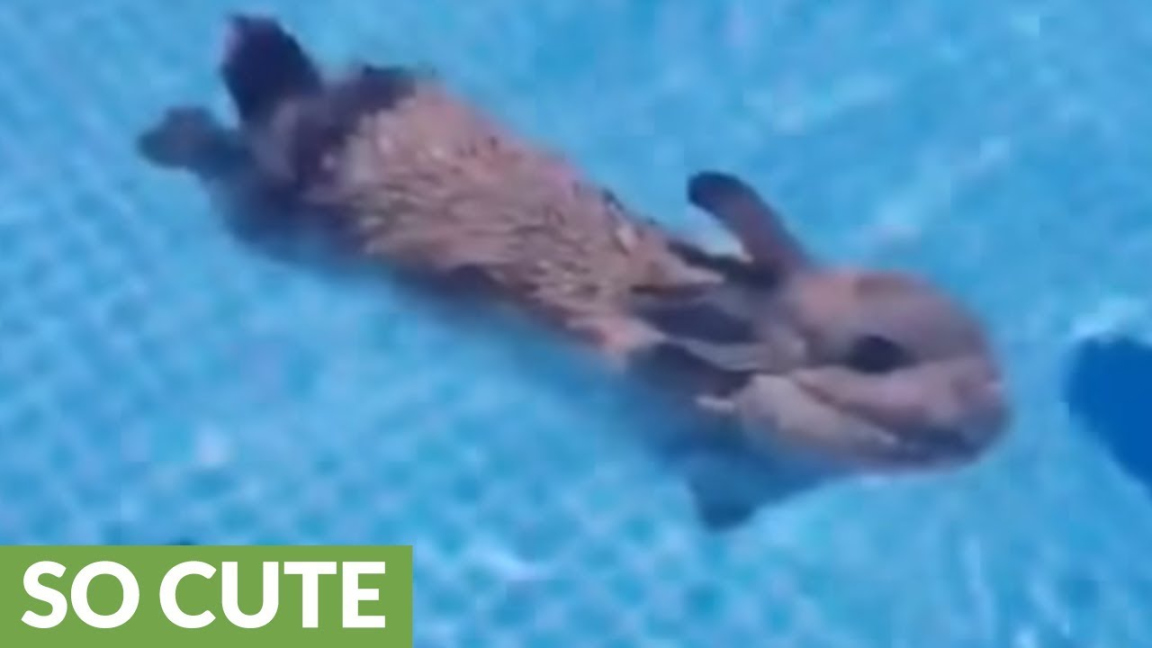Can a Rabbit Swim?
Rabbits are known for their agility and quickness on land, but what about their abilities in the water? Can a rabbit swim? This is a common question among rabbit owners and enthusiasts, and the answer may surprise you. In this article, we will explore the swimming capabilities of rabbits and provide you with all the information you need to know.

Can rabbits swim naturally?
Rabbits are not natural swimmers. Unlike some other animals, such as ducks or fish, rabbits do not possess the instinctive ability to swim. Their bodies are not designed for swimming, and they do not have the necessary adaptations, such as webbed feet or a streamlined shape, to move efficiently in the water.
The anatomy of a rabbit, from its short legs to its dense fur, is not conducive to swimming.
Do rabbits enjoy swimming?
While rabbits may not be natural swimmers, some individuals may enjoy being in the water. Every rabbit has its own unique personality, and some may be more inclined to explore new experiences, including swimming. However, it is important to note that this is not the norm, and most rabbits may feel stressed or frightened when placed in water.
Should I let my rabbit swim?
It is generally not recommended to let your rabbit swim. While there may be a few exceptions, most rabbits are not comfortable in the water and may experience distress or panic when placed in a swimming situation. Additionally, rabbits have sensitive respiratory systems, and being in water can pose a risk of aspiration or respiratory infections.
If you are considering allowing your rabbit to swim, it is crucial to provide a safe and controlled environment. Always supervise your rabbit closely, ensure the water is shallow enough for them to touch the ground, and never force them into the water.
Risks and precautions
Even though rabbits are not natural swimmers, there are some individuals who may accidentally find themselves in water or be deliberately placed there by their owners. In such cases, it is important to be aware of the potential risks and take necessary precautions to ensure the safety and well-being of your rabbit.
Some of the risks associated with rabbit swimming include:
- Drowning: Rabbits can panic when placed in water, leading to the risk of drowning if they are unable to find their way out. Ensure that the water is shallow enough for your rabbit to stand and easily exit the container or area.
- Respiratory issues: Rabbits have sensitive respiratory systems, and being in water can increase the risk of aspiration or respiratory infections. Watch out for any signs of respiratory distress, such as rapid breathing or wheezing, and consult a veterinarian if you notice any problems.
- Hypothermia: Rabbits are not equipped to handle cold temperatures, and being in water for prolonged periods can lead to hypothermia. Always ensure that the water is warm and comfortable for your rabbit, and never leave them unattended.
- Stress and fear: For most rabbits, being in water causes stress and fear. It is essential to prioritize your rabbit’s well-being and only expose them to swimming if they show genuine signs of enjoyment and are comfortable in the water.
FAQs
1. Can all rabbits learn to swim?
No, not all rabbits can learn to swim. While some individual rabbits may enjoy being in the water, it is not a natural or instinctive behavior for rabbits. A majority of rabbits will feel stressed or frightened when placed in a swimming situation, and it is generally best to avoid it.
2. How can I tell if my rabbit enjoys swimming?
If your rabbit enjoys swimming, it may display signs of excitement and curiosity when exposed to water. They may willingly enter the water and paddle or move around comfortably without signs of distress. However, it is crucial to closely monitor their behavior and ensure their safety at all times.
3. Can rabbits drown if left unattended in water?
Yes, rabbits can drown if left unattended in water. It is essential to supervise your rabbit closely and ensure they can easily exit the container or area if they become overwhelmed or panicked. Always provide a safe and controlled environment to minimize any potential risks.
4. Are there any alternative ways to provide rabbits with water-related enrichment?
Yes, there are alternative ways to provide rabbits with water-related enrichment. You can offer them shallow bowls of water to splash in, provide them with damp or wet areas to explore, or even use a misting spray bottle during hot weather. These activities can help keep your rabbit engaged and entertained without the need for swimming.
In conclusion, while rabbits may not be natural swimmers, there are always exceptions to the rule. However, it is crucial to prioritize your rabbit’s well-being and safety. If you do decide to let your rabbit swim, ensure it is in a controlled and supervised environment, and always pay attention to any signs of distress or discomfort. Ultimately, it is best to consult with a veterinarian who can provide tailored advice based on your specific rabbit’s needs.
Related Articles…
Copyright Notice:
The images displayed here are sourced from the internet, with copyrights held by respective owners. For removal of any copyrighted image, please email us.